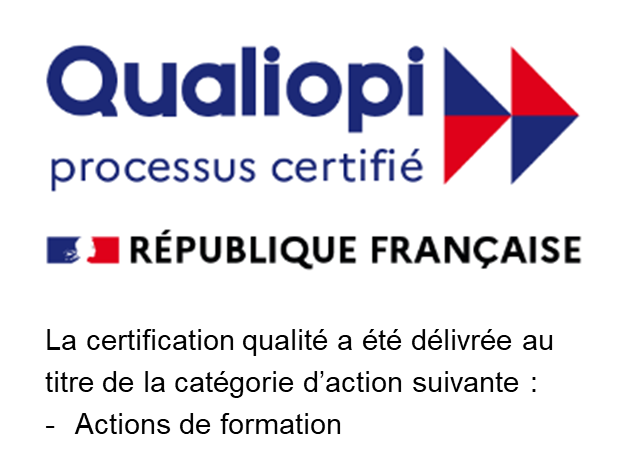ONGOING SUPPORT IN CHALLENGING TIMES
Courtney Lind • March 20, 2020
NetExpat's support for mobile employees and their families continues uninterrupted during the COVID-19 outbreak.
Just a few short weeks ago, our world was a very different place. Today, we are experiencing a global pandemic, something that none of us have seen in our lifetimes with uncertainties that can seem all encompassing.
During this challenging and unprecedented time, we want you to know that at NetExpat we are more committed to the clients, employees and families we support than ever before. As an organization, we pride ourselves on being the global leader in assessment, training and coaching for mobile employees and their partners – individuals experiencing major life transitions. Some could argue that amidst a crisis like this, that we are all in transition. We see the need now more than ever to help one another, and our intention is to do just that.
In order to adapt to the current situation and put health and safety at the forefront, we have made the decision to deliver all of our services virtually until further notice. Our Operations Team is fully operational on a remote basis and prepared to assist our clients and partners during the COVID-19 outbreak. Our highly skilled team of worldwide consultants will continue to provide their guidance using comprehensive online meeting platforms that allow for a flexible alternative during this uncertain time. We understand the stress that may be faced by mobile employees and their families and are here to offer our continued support in a safe, virtual environment, and look forward to connecting with everyone online.
Contact Us
Together we will all get through this challenging time and come out stronger and more unified than before. The scale of global efforts to prevent the spread of the COVID-19 virus has shown us the importance of worldwide unity and is a strong statement to the power of cultural understanding and partnerships. Continuing to support globally mobile employees and their families during these trying times is critical to the future of mobility and at NetExpat we are here to help.
If you have any questions or concerns, please reach out and a member of our team will be happy to assist you.
Share this post

A series of trends and events are impacting the way APAC-based companies are doing business, as well as how international organizations engage with them. As workforce borders within this active region continue to blur, intercultural agility has become more important – and more nuanced – than ever before. Whether it’s a business that's building a diverse workforce within the APAC region or a multi-national company working across cultures to do business with them, employers and the employees that work for them must forget everything they think they know about intercultural communication. Growing workforce diversity means not just knowing about the culture a business is headquartered in, but also the many cultures making up their staff. Intercultural training has therefore become a crucial investment for any business hoping to thrive in this diverse landscape.

Most mobile employees accept international relocations with mixed feelings that include excitement and curiosity. However, they’re often surprised when their move comes with more feelings of disorientation than they expected. Culture shock – the feelings of confusion, disconnectedness, and anxiety that people experience while integrating into a new culture – can make it difficult for mobile employees to transition into their new assignments effectively. It can also make it difficult for their accompanying families to settle into their new home, adding further stress to your employees’ relocation experiences. It all negatively impacts employees – but it has costly negative impacts for the organization, too. Understanding the stages of culture shock can make dealing with it easier. Below, we take a look at each and offer suggestions your employees can use for navigating them. While supporting them on their journeys helps them to integrate into their new surroundings faster and with greater ease – it also benefits business productivity, organizational goals, and the company’s bottom line. Stages of Culture Shock & Suggestions for Dealing with Them

Between rising costs and limited budgets, it’s no surprise that many organizations turn to lump sum payments to control talent mobility spending. But is this approach effective – or can it actually end up costing companies more? In this blog post, we’ll discuss the unexpected costs associated with lump sum payment models, where they can go wrong, their impacts on the employee experience, and why managed moves benefit employees and organizations in the long run. Perception vs. Reality: Lump Sum Payment Outcomes When organizations offer lump sum payments to their mobile employees, they're often being driven by a few assumptions. They believe that their mobile employees: Possess sufficient financial skills to manage their relocation budget Are savvy enough to procure the right relocation services/providers at the right times Have enough host-country knowledge to navigate area-specific nuances independently Will decrease the need for administrative resources by self-managing their relocations

Patricia Glasel has a rich international background, having lived in several different countries growing up. Her journey began in Gabon, where she was born, and extended across various African nations due to her father's work. Patricia's extensive experience as an expatriate has given her a deep understanding of the joys and challenges of living abroad. She holds M.B.A. an a degree in organizational behavior and cross-cultural training from Northwestern University, which has equipped her to support others in their global mobility journeys. After having lived in 11 countries, Patricia currently resides in France and enjoys sharing her experiences to help others navigate their expatriation adventures. Patricia also serves as a Foreign Trade Advisor for the French Government, providing high-level insights and support for international trade initiatives.

In a competitive global market, organizations face a myriad of laws, regulations, and ethical standards. And because compliance requirements differ from one country to another, a workforce’s intercultural agility plays a significant part in a company’s ability to ‘be’ compliant in the countries they do business with. Intercultural misunderstandings can be costly, leading to safety issues, lost sales and missed business opportunities, but they can also result in hefty fines, sanctions, and even being barred from operating in key markets. Because the ability to navigate cultural differences is crucial to the success and sustainability of global organizations, cultural compliance should be a part of every organization’s overall compliance strategy.

NetExpat recently interviewed two key members of the Eramet Group Team about their efforts in providing intercultural training for their international workforce through their partnership with NetExpat. The initiative is designed to enhance cultural understanding and collaboration among expatriates and multicultural teams, leading to better teamwork and productivity. The interview offers insights on the implementation, impact on performance, family integration success, and much more.

Employee well-being benefits more than just employees. It also benefits employers and the customers they serve. What many organizations don’t realize is how much intercultural agility impacts employee well-being. Below, we’ll discuss the relationship between the two and why focusing on intercultural agility should always be a part of your global talent mobility strategy. Why Employee Well-being Matters Prioritizing employee well-being makes sense from a duty of care standpoint, but it also benefits businesses. Employees that are happy and well are typically more engaged at work. Employes that are culturally agile enjoy enhanced well-being, as they’re better able to collaborate with their teammates and customers. This results in higher levels of engagement at the individual level – and enhanced collaboration and innovation among teams. Additional outcomes include a stronger company culture, brand reputation, and employee retention rate. Customers also reap the benefits. When well-being is prioritized and employees are given the tools they need to succeed, they’re more likely to provide excellent customer service and care. Businesses benefit from higher customer satisfaction scores and brand loyalty. Conversely, the risks of not investing in employee well-being can be costly:

When organizations support mobile employees during an intercultural assignment, they benefit long after those same individuals repatriate. The trouble is, too many businesses don’t see repatriation as a component of the assignment, which can have negative outcomes for both them and the employees they’ve invested in: Without repatriation support, employees face a myriad of challenges, from reverse culture shock and career uncertainty to feeling diminished. Businesses end up paying the price, from employees being disengaged to losing talent altogether. Both have negative impacts on a company’s ROI.







